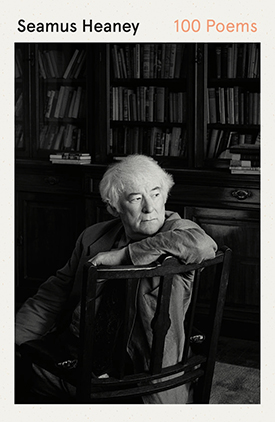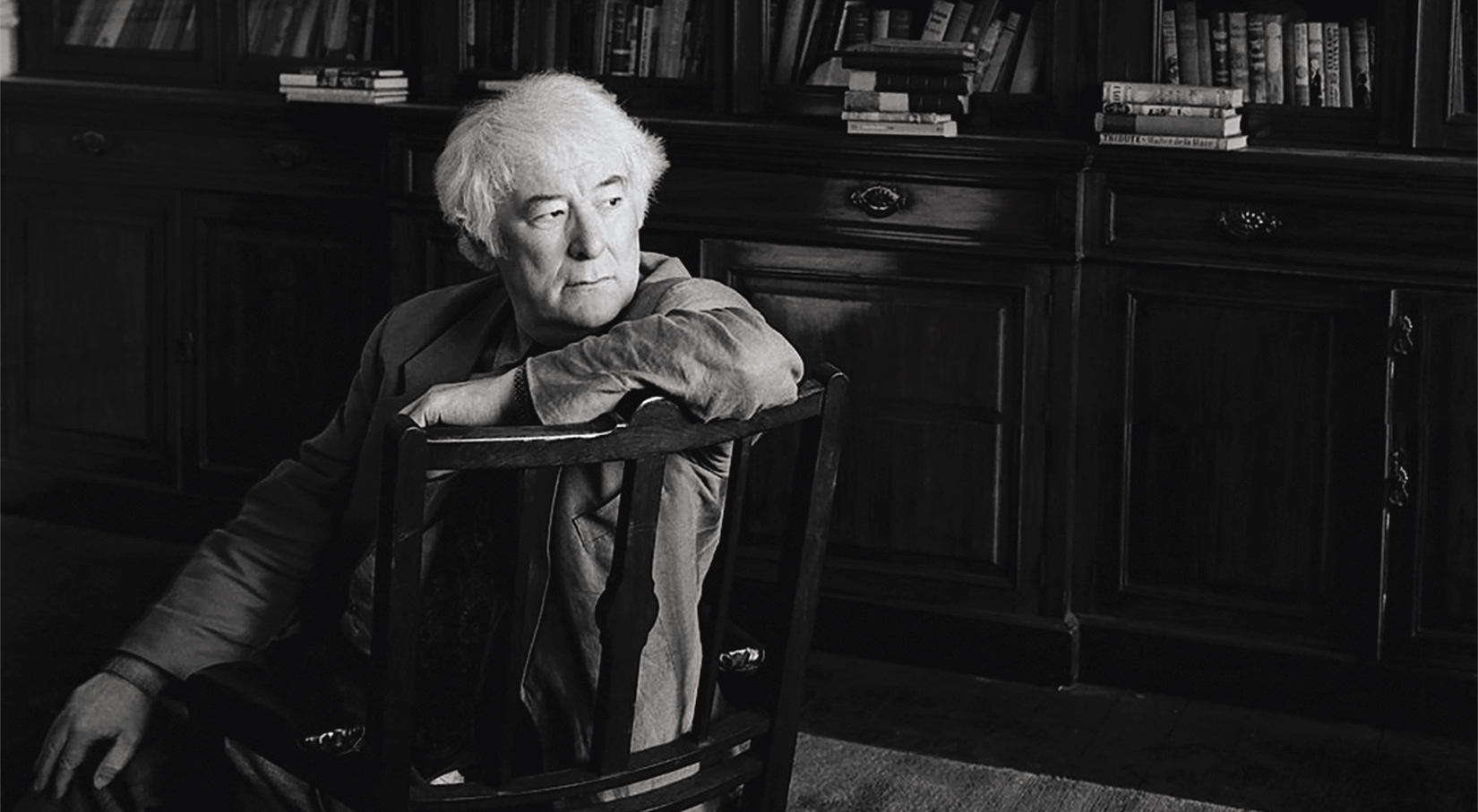
The idea for this collection of one hundred poems is not a new one. My father himself had contemplated such a book, particularly in later years, and had gone as far as discussing it with his editor and close confidants. The notion of a “trim” selection appealed to him, and while he had chosen and edited Selected Poems 1965–1975, New Selected Poems 1966–1987, and Opened Ground: Selected Poems 1966–1996–as well as many editions in translation–no single volume existed representing the entire sweep of his career, from first collection to last.
Now, almost five years after his death, we, his immediate family, have returned to that idea. By its very nature, this is a different selection from the one Dad might have made–or an independent editor, for that matter. We took the decision to draw from the twelve original collections (with two exceptions) and leave aside his translations of Sweeney Astray, Beowulf and others. It includes many of his best-loved and most celebrated poems, as well as others that were among his favourites to read and which conjure up that much-missed voice. However, we also made some choices that have special resonance for us individually: evocations of departed friends; remembered moments from a long-ago holiday; familiar objects from our family home. Each one of us–my mother, Marie, my brothers, Michael and Christopher, and I–approached the task with a lifetime’s memories, no one more so than my mother, who had to choose from a trove of love poems spanning fifty years. Perhaps inevitably, the resulting selection is imbued with personal recollections of our shared lives.
Yet we hope that everyone will find something here to cherish or be surprised by: that a newcomer will enjoy reading these poems for the first time, and that the long-time devotee might rediscover a forgotten favourite or simply listen again to the poetic voice as it changes and matures over the course of the years. Indeed, many readers will come to this book with their own particular memories and associations–of times when a poem helped to mark a moment of joy, perhaps, or offered consolation.
Finally, rather than being an ‘in memoriam’ volume, this collection is intended as a celebration of the extraordinary person who gave us these poems. He himself once said that he had begun to think of life as ‘a series of ripples widening out from an original centre’; we hope this book serves as a reminder of the power and vitality of his work, and a testament to its continuing life, rippling outwards with every new reader.
We hope this book serves as a reminder of the power and vitality of his work, and a testament to its continuing life, rippling outwards with every new reader.
–Catherine Heaney
• • •
The Railway Children
When we climbed the slopes of the cutting
We were eye-level with the white cups
Of the telegraph poles and the sizzling wires.
Like lovely freehand they curved for miles
East and miles west beyond us, sagging
Under their burden of swallows.
We were small and thought we knew nothing
Worth knowing. We thought words travelled the wires
In the shiny pouches of raindrops,
Each one seeded full with the light
Of the sky, the gleam of the lines, and ourselves
So infinitesimally scaled
We could stream through the eye of a needle.
• • •
A Call
‘Hold on,’ she said, ‘I’ll just run out and get him.
The weather here’s so good, he took the chance
To do a bit of weeding.’
So I saw him
Down on his hands and knees beside the leek rig,
Touching, inspecting, separating one
Stalk from the other, gently pulling up
Everything not tapered, frail and leafless,
Pleased to feel each little weed-root break,
But rueful also . . .
Then found myself listening to
The amplified grave ticking of hall clocks
Where the phone lay unattended in a calm
Of mirror glass and sunstruck pendulums . . .
And found myself then thinking: if it were nowadays,
This is how Death would summon Everyman.
Next thing he spoke and I nearly said I loved him.
Seamus Heaney (1939–2013) was born in Northern Ireland. Death of a Naturalist, his first collection of poems, appeared in 1966 and was followed by numerous volumes of poetry, plays, criticism, and translation, establishing him as one of the leading English-language poets of his generation. In 1995 he was awarded the Nobel Prize in Literature. His translation of Virgil’s Aeneid Book VI was published posthumously in 2016 to great critical acclaim.
